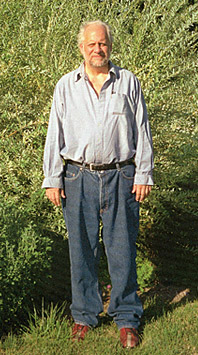Vitamin B
In the middle of writing a non-fiction book on the history of the world’s religions, I despair about finishing before it’s too late. Writing a book requires much more careful thought than I imagined. As much heat as light: preparation, outline, sources, sentence and paragraph structure, etc. It’s true that a plan is crucial. Also, professionals say that, at some point, I’ll begin rewriting. However, it won’t be soon.
Certainly, part of the reason for writer’s block is distraction. But it goes much deeper. For example, reading on the web warps the mental processes developed over years of normal concentration levels. One doesn’t read on the internet as much as looks at words. This habit weakens the mind and negatively affects the ability to think. People used to say this about the passivity induced by television. I believe it. I consider TV to be satanic, but not the web, at least so far. Recently, a visiting friend told me about the Kindle, a “book machine” from Amazon. I’d heard positive reports about it from others. He went out to his car to get it. What a let-down. It is not much different from staring at a computer screen. If anything, the deception caused by the positive PR it has received makes it worse. “Why lug books around anymore?” my friend asked. “Why not?” I wondered. Indeed, what’s the advantage? I don’t read two or three books at a time and, if I did, a few extra ounces in my briefcase wouldn’t be a problem. I like books. Other Kindle disadvantages include an unpleasant tactile experience (it feels dirty) and an inability to flip around, which I love to do. Also, pressing yet another of life’s many buttons to turn a page – ugh.
However, the main objection is the subtle shift – both away from an individual book and toward an impersonal electronic medium that looks eerily like an eye – that is scary and possesses a profound implication. Like television, which “sees” for you, Kindle seems to “think”, or read, for you. No thanks. There are enough electronic media already, and I have neither a computer nor a cell phone. I plan to continue living without them. I write long hand and give everything to my secretary. I can’t imagine what kids go through these days, in addition to the commonplace temptations of the serpents in the rose garden of new media. The obesity epidemic is nothing compared to what’s going on in their heads. I believe computers destroy the ability to think. I realize this is a cliché. However, I haven’t faced it until now. It has made writing harder for me. I’m used to both reading and writing notes, comments, trip reports, field observations, catalog copy and press releases – much of it on the internet at work. Writing a serious book of non-fiction is like running a marathon.
P.S. Isn’t Mrs. Burpee great?! She went to Wellesley College in the mid 1930s and married the son of our founder after working as an intern at Fordhook Farm. She helped David Burpee connect with the missionary community in Asia who provided him with samples of unusual vegetables. Brilliant and creative in her own right, she joined with her friend and fellow missionary brat, Pearl Buck, to found Welcome House, one the nation’s leading orphanages. Also, after I bought Fordhook, I discovered a pair of large old freezers in the basement. Mrs. Burpee used to clip newspaper coupons for meat and especially chicken and then drive around to all the grocery stores in her station wagon. She could feed an army from those freezers. Dynamite lady.
The excerpt is from her hard-to-find cookbook, Lois Burpee’s Gardener’s Companion and Cookbook.
